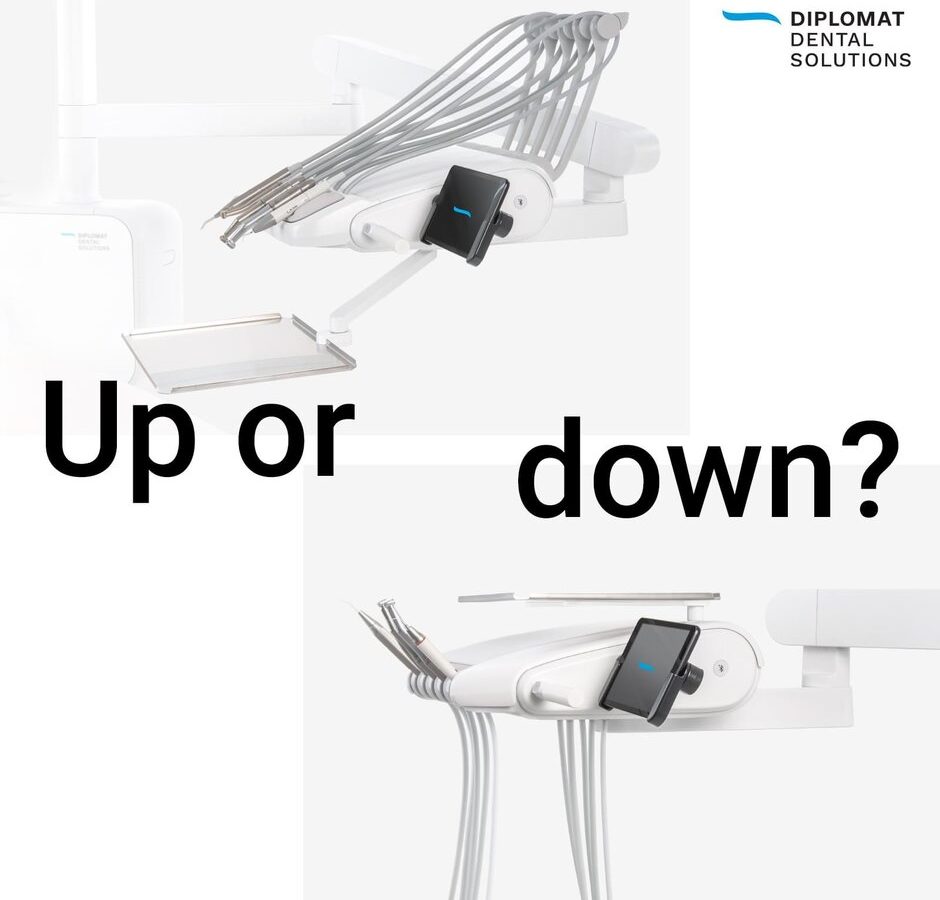Operating a dental practice involves navigating various challenges that can occasionally lead to temporary closures and financial losses.
We continue our series of articles within the “Diplomat Dental Academy” to facilitate the decision of purchasing the first dental unit.
Part 1: How to choose your first dental unit?
Here are common reasons for dental office closures and financial losses, along with Diplomat Dental advice to avoid them.
Equipment failure
- Details: Dental practices rely heavily on specialized equipment such as dental chairs, X-ray machines, and sterilization units. Any failure or malfunction in this critical equipment can halt operations.
- Impact: Downtime due to repairs or replacements can lead to cancellations of appointments and loss of income.
Diplomat Dental advice:
- Choose reliable brands: Invest in high-quality, reputable brands known for their reliability and longevity.
- Regular maintenance: Schedule regular maintenance and inspections to identify and fix potential issues before they lead to equipment failure.
- Have backup equipment: Maintain essential backup equipment to minimize downtime during repairs.
Staff shortages
- Details: Dental offices require a team of professionals, including dentists, hygienists, and administrative staff. Unexpected absences due to illness, personal emergencies, or turnover can disrupt services.
- Impact: Inability to provide scheduled treatments can result in lost revenue and inconvenience to patients, potentially damaging the practice’s reputation.
Diplomat Dental advice:
- Cross-train staff: Train staff to handle multiple roles to cover for unexpected absences.
- Maintain a pool of temp staff: Keep a list of reliable temporary staff who can be called in on short notice.
- Employee wellness programs: Implement wellness programs to reduce absenteeism and improve staff retention.
Health and safety issues
- Details: Compliance with health and safety regulations is paramount in dental practices. Issues such as contamination, infection control breaches, or pest infestations necessitate immediate closure until resolved.
- Impact: Addressing these issues often involves extensive cleaning, disinfection, and sometimes renovations, leading to prolonged downtime and significant financial loss.
Diplomat Dental advice:
- Strict protocols: Follow strict infection control protocols and conduct regular health and safety audits.
- Staff training: Regularly train staff on best practices for hygiene and safety.
- Emergency plans: Have an emergency plan in place for dealing with health and safety issues promptly and efficiently.
Natural disasters and extreme weather
- Details: Events like hurricanes, floods, earthquakes, and severe storms can cause significant damage to dental offices or make them inaccessible.
- Impact: Structural damage, power outages, and transportation difficulties can force closures until repairs are completed and safety is assured, resulting in prolonged periods without income.
Diplomat Dental advice:
- Disaster preparedness: Develop and maintain a comprehensive disaster preparedness plan.
- Insurance: Ensure adequate insurance coverage for natural disasters.
- Resilient infrastructure: Invest in making the office infrastructure more resilient to extreme weather conditions.
Legal and regulatory compliance
- Details: Dental practices must adhere to numerous regulations and licensing requirements. Violations or lapses in compliance can result in enforced closures by regulatory bodies.
- Impact: Resolving legal issues and regaining compliance can be time-consuming and costly, leading to temporary cessation of operations and financial penalties.
Diplomat Dental advice:
- Regular audits: Conduct regular internal audits to ensure compliance with all regulations.
- Stay informed: Keep updated with changes in laws and regulations affecting dental practices.
- Consult experts: Engage legal and compliance experts to periodically review the practice’s operations and advise on compliance matters.
By understanding these common reasons for closures, dental professionals can take proactive measures to mitigate risks and ensure continuity of operations. Investing in regular equipment maintenance, having contingency plans for staff shortages, maintaining rigorous health and safety standards, preparing for natural disasters, and staying updated with regulatory requirements can help minimize disruptions and financial losses.








